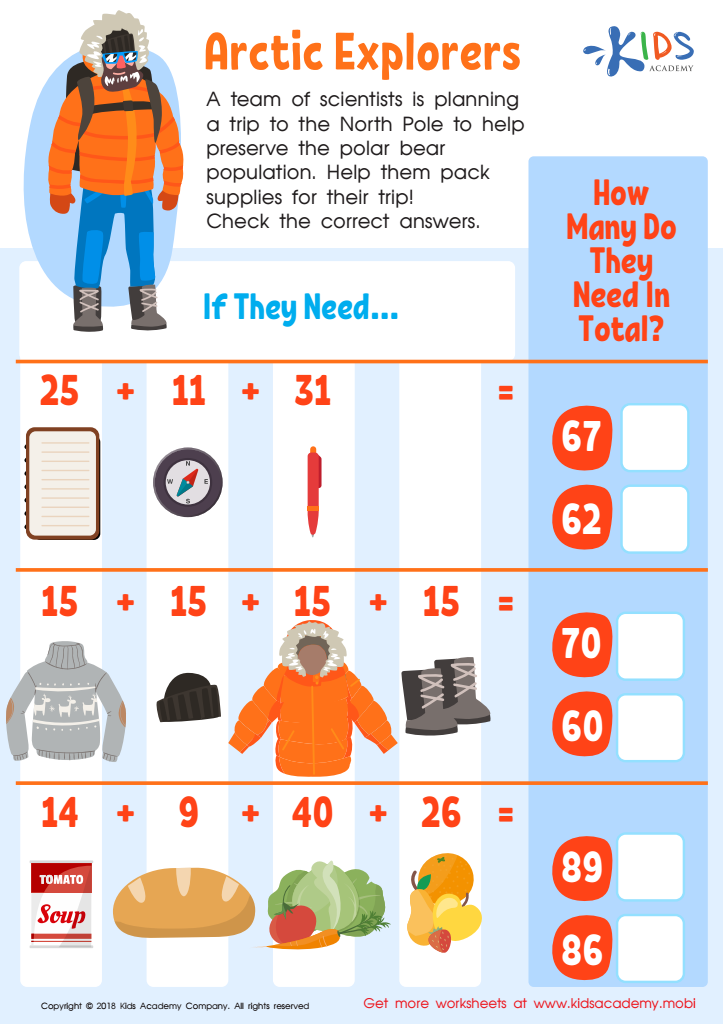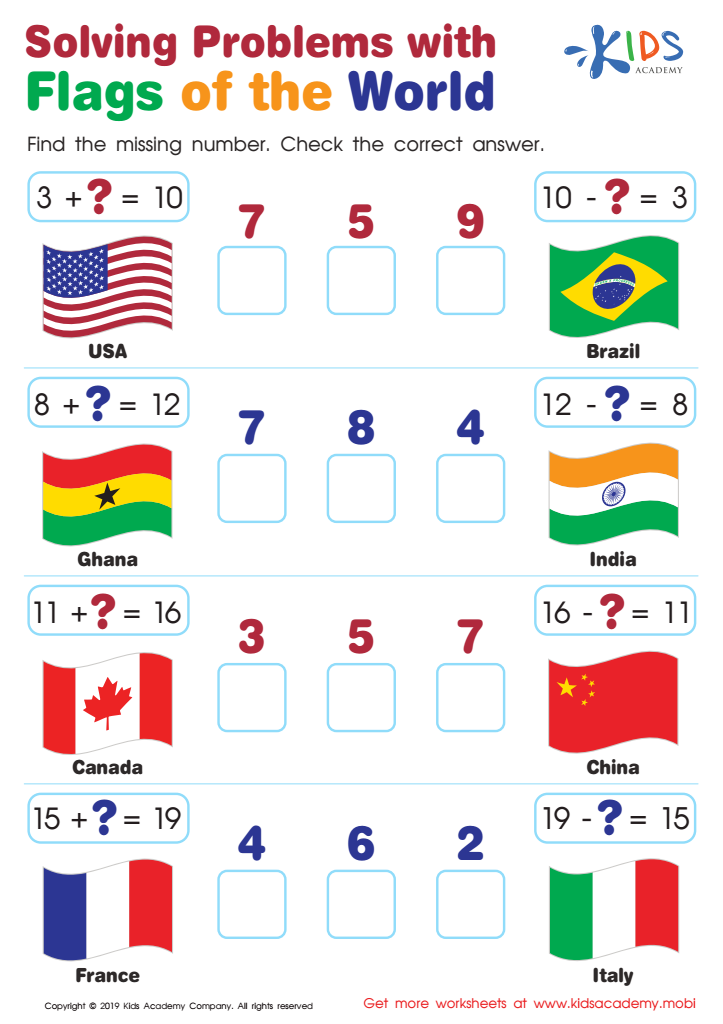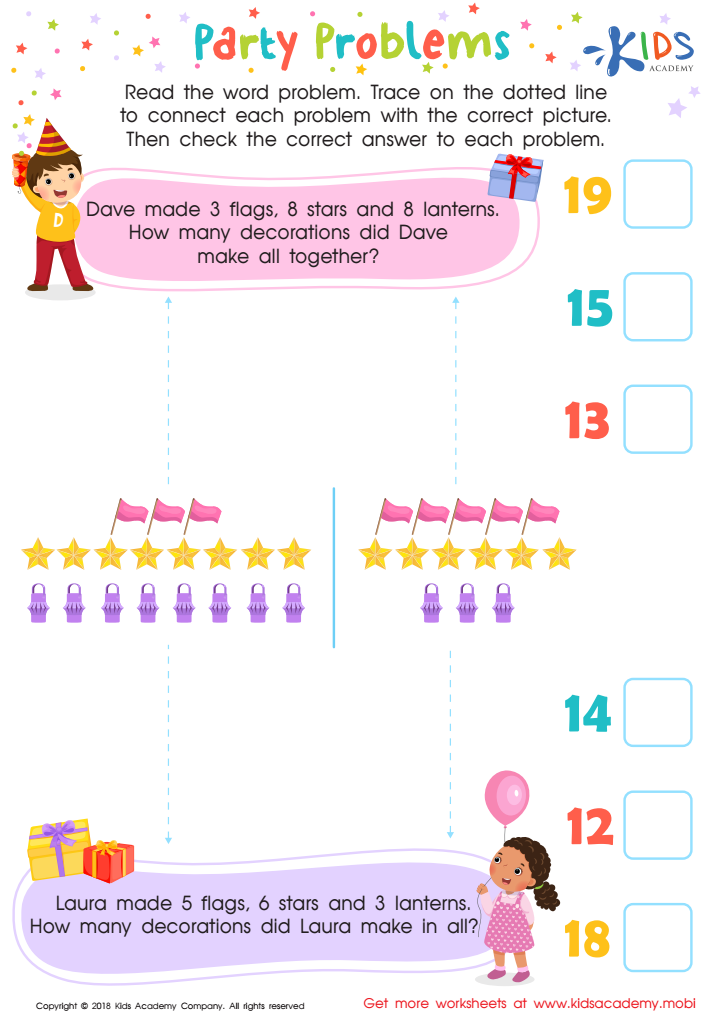Critical Thinking Normal Addition & Subtraction Worksheets for Ages 3-7
5 filtered results
-
From - To
Nurture your child's problem-solving skills with our "Critical Thinking Normal Addition & Subtraction Worksheets for Ages 3-7". Specially designed to blend fundamental math with critical thinking, these worksheets make learning addition and subtraction fun and engaging. Your young learner will solve mathematical problems while developing essential cognitive skills such as logical reasoning, pattern recognition, and analytical thinking. Ideal for early learners, these worksheets present age-appropriate challenges to stimulate intellect and foster a love for math. Perfect for home or classroom use, our worksheets provide a strong foundation for future academic success. Discover a smarter way to learn math today!


Tricky Problems Worksheet: Part 1


Arctic Explorers Worksheet


Word Problems: Assessment 2 Worksheet


Solving Problems with Flags of the World Worksheet


Party Problems Worksheet
Critical thinking and mastering basic addition and subtraction are essential foundational skills for young children aged 3-7, that parents and teachers should prioritize. During these formative years, children's brains are exceptionally malleable and more capable of absorbing new concepts. Cultivating critical thinking abilities helps children learn to analyze, reason, and solve problems rather than just memorize facts. This prepares them for future academic challenges by fostering a mindset geared towards understanding the ‘why’ behind processes, rather than solely the ‘what’.
Introducing normal addition and subtraction at an early age forms the bedrock for more complex mathematics education. Proficiency in these basic arithmetic operations bolsters their confidence, making them feel competent and capable when facing other learning tasks. It is vital as mathematics skills are not just crucial in academics; they permeate everyday life—from understanding money to time management.
Moreover, engaging children in critical thinking and arithmetic activities from a young age can ignite a lifelong interest in learning, boost their cognitive development, foster patience, and enhance their problem-solving skills. Building these capabilities early ensures they are adept as they progress through their educational journey, laying down a solid foundation for future success both in school and everyday life.
 Assign to My Students
Assign to My Students





















